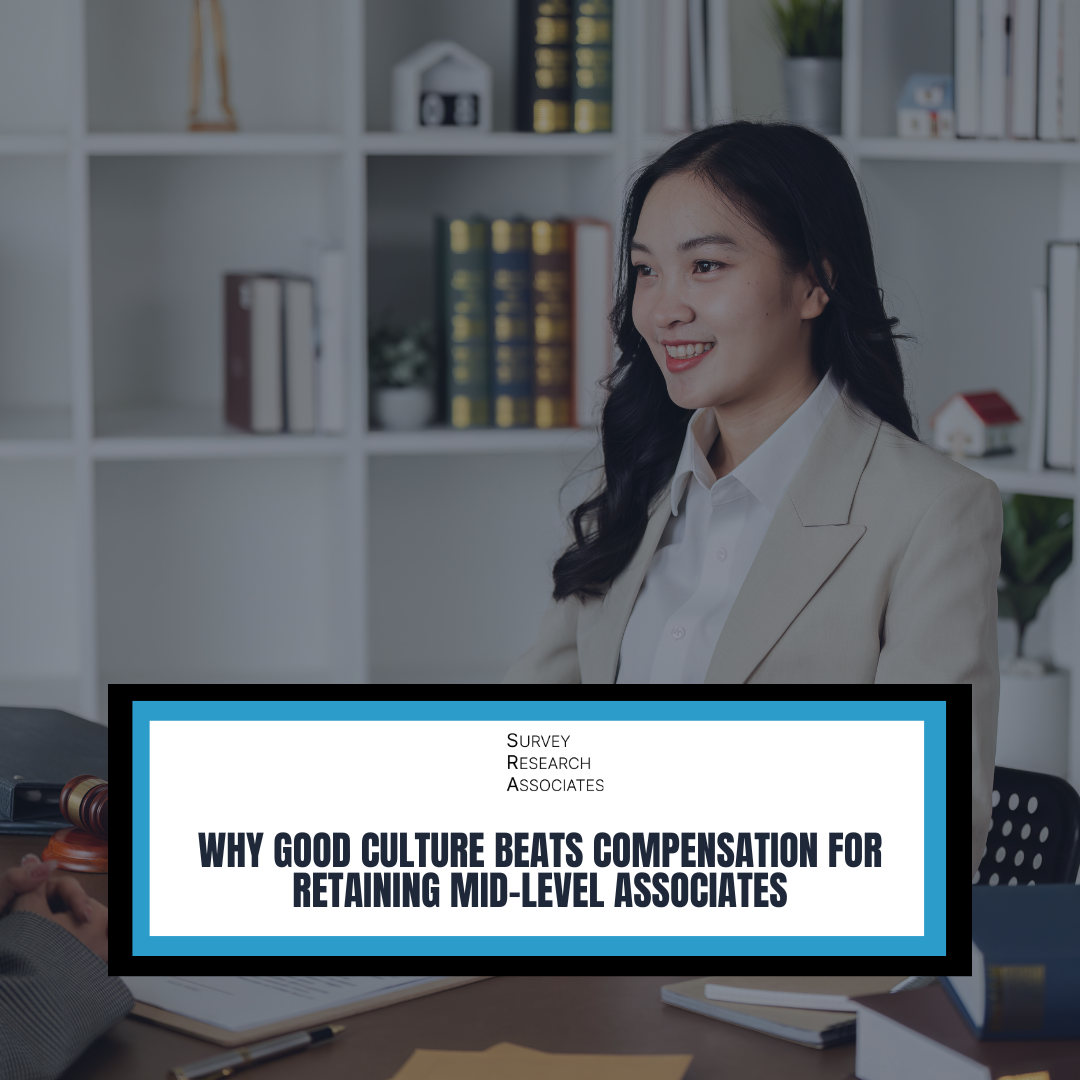Collecting candid feedback from associates is one of the hardest cultural challenges a small law firm faces. Without confidentiality, honesty disappears and so does the opportunity for partners to grow. This piece breaks down how small and mid-sized firms can design upward review systems that truly protect anonymity, build trust, and turn insights into better leadership.
1) Why upward feedback matters (especially in small firms)
In tight teams, one supervision style can define the associate experience. Upward reviews surface patterns workload inequity, unclear direction, micro-management that traditional reviews miss. For engagement drivers and cultural signals, see Thomson Reuters’ culture research. Thomson Reuters
Related SRA reads:
• How to Create Fair and Inclusive Law Firm Reviews
• Why Your Firm Needs Upward Reviews (hub with multiple upward-review posts)
2) The real blocker: fear
Associates often fear identification or retaliation. Effective programs make safety provable, not promised: third-party collection, minimum-respondent thresholds, and clear “who sees what” rules. (See this leadership perspective on upward reviews and trust from Volta People.) Volta Talent Strategies
3) Build a confidential system in 6 steps
- Define the purpose (leadership development, not grading).
- Pick a third-party mechanism (SRA-managed, vi by Aderant, or Litera Talent & HR). vi by Aderant+1
- Set min-N (e.g., show results only when ≥3 reviewers).
- Strip identifiers (names, matter IDs; delay result release to avoid timing clues).
- Close the loop (share “what we heard → what we’re doing”).
- Monitor trends (re-run every 6–9 months).
4) Example from practice
A 60-lawyer firm piloted SRA’s upward feedback module. Response rates moved from ~40% to 85%, three partner coaching plans began within one quarter, and allocation changes reduced weekend crunch on one team by 22% (internal SRA program analytics; details available on request).
Related SRA reads: How to Create Impactful Performance Review Reports
5) Small-firm checklist
- Third-party, anonymized collection
- Min-N threshold + delayed release
- Clear comms on purpose and access rules
- Aggregated dashboards by practice/office
- Post-feedback action & coaching plan
- Re-run cadence + trend review
FAQ
Q1: Can small firms afford these platforms?
Yes many scale with pay-per-license or pay-per-review models; the investment is often far less than one associate departure cost.
Q2: What if an associate still fears being identified?
Apply multiple protections: third-party vendor, minimum respondent threshold, delayed result release.
Q3: How do we act on feedback?
Set partner action plans tied to results; link into your performance management cycle.
Ready to launch confidential upward reviews? Book a 15-minute assessment or see our case studies.
TL;DR
- Participation jumps when anonymity is real, processes are transparent, and results are aggregated (min-N). (Professional consensus + practitioner evidence.)
- Third-party tools de-identify responses before any partner sees them (e.g., vi by Aderant, Litera, or SRA’s managed programs). vi by Aderant+1
- Culture and leadership engagement determine whether upward feedback improves retention—or becomes a checkbox. See TRI Law Firm Culture 2025. Thomson Reuters
Disclaimer: Educational content; not legal advice.
Privacy: No individual response is shared; SRA uses SOC 2 / ISO 27001-aligned controls.
Contact: info@srahq.com


